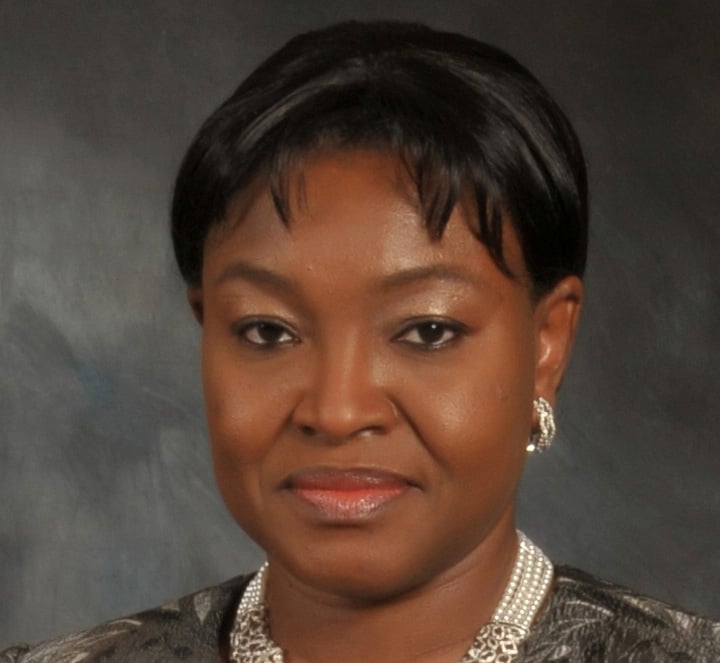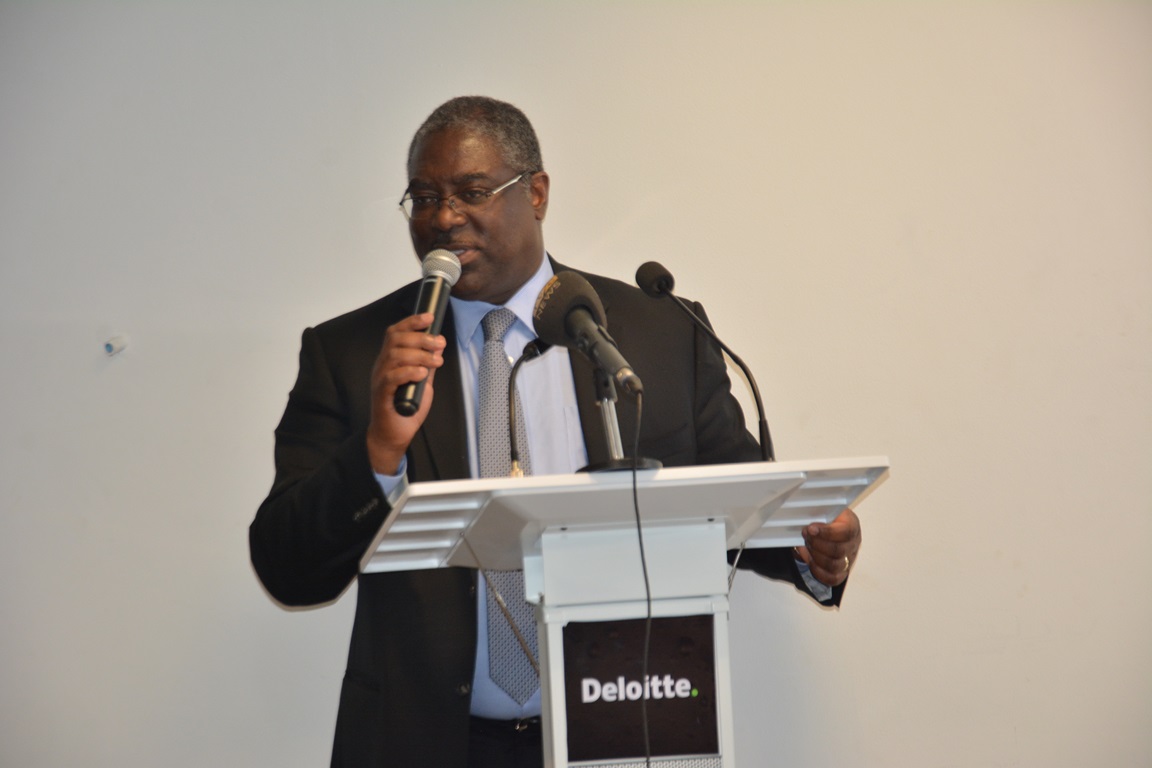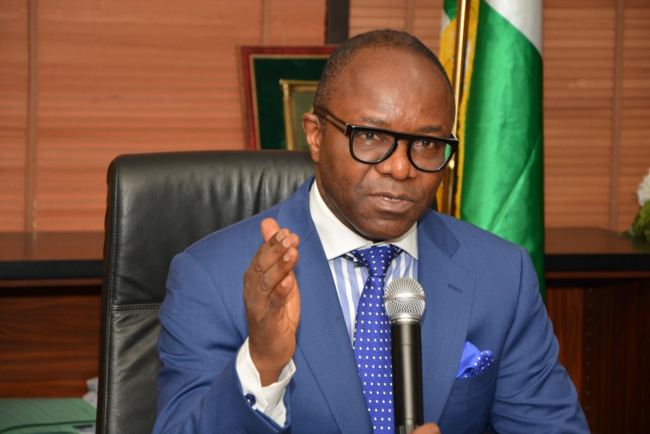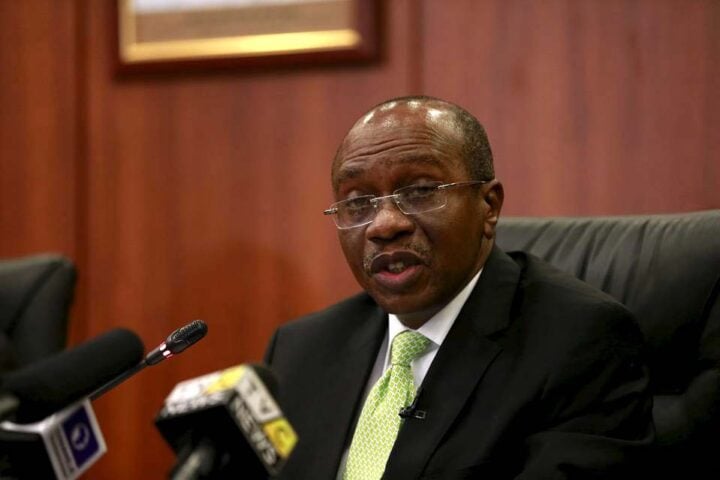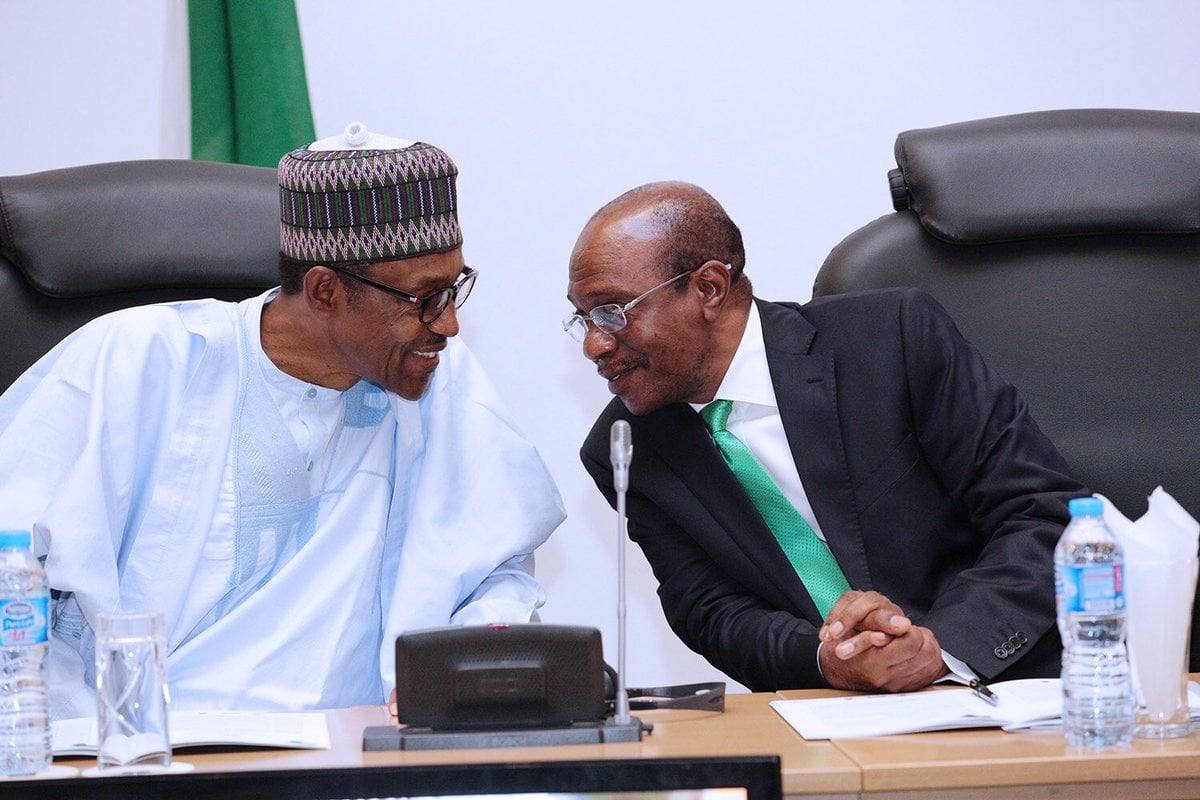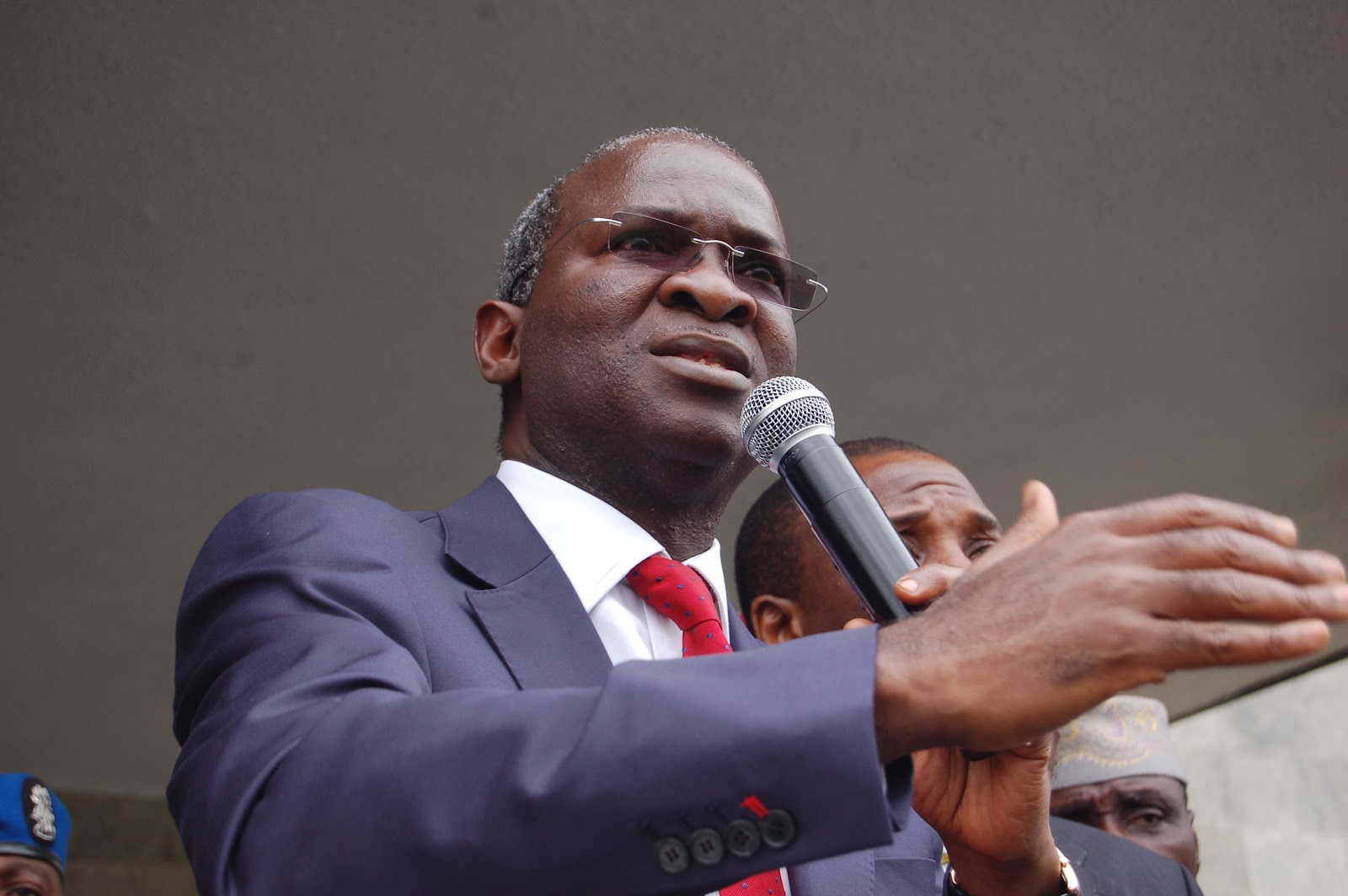Text of the keynote at the 11th Founder’s Day of American University of Nigeria delivered by Funke Osibodu, CEO of the Benin Electricity Distribution Company, on November 19, 2016
I am pleased to be part of this year’s Founder’s day celebration which is also marking 70 years of the Founder.
Indeed, I got to know more about American University of Nigeria (AUN) about 6years ago when the daughter of a colleague came here for her studies. The last time I was in Yola was over 18years ago when I came here for the burial of one of my former banking Directors. Even, though this is a long time ago, I still remember my journey by road from Abuja, the cotton fields on the way, the beautiful scenery, and the very quiet, peaceful town or rather country side.
So when I received this invitation, it was difficult to refuse. I was also looking forward to seeing what is different, since my last visit.
Advertisement
It is obvious that AUN is a hidden oasis of surprise. You can be anywhere in the world, in any of the world celebrated universities, but with a difference. The unique mix of world class environment blended with the reality of our society’s development status and the current challenges facing us as Nigerians, creates for a sober reflection on what progress or otherwise that we have made in Nigeria.
As the Keynote Speaker, it is from this context that I have termed my presentation BEYOND OIL… SUSTAINABLE DEVELOPMENT FOR ALL NIGERIANS. I wish us to note two words here – sustainable and all Nigerians. I am hoping we will use the next few minutes, as an opportunity to reflect on our dear country, what are our existing limitations, and how we develop this country using the principles that will ensure an improved and sustainable future for all Nigerian – not for the few, but significantly reducing the gap between the few very rich and the very many poor.
Indeed we need to create the very many rich, and very many who can afford (called middle class), if the country is to grow and have peace. American University of Nigeria professes to be a center for learning, research and CATALYST FOR DEVELOPMENT, therefore there is no better location to again say and repeat this common or rather uncommon sense principle.
Advertisement
Current Reality
We do all hear the different figures and data being thrown around by different authorities- the press, economists, bankers, the government, etc. Our economy is heavily reliant on oil, and oil price is at $48.91. We are producing 1.6mbd. Our external reserved have shrunk to US$ 24.53bn. Inflation has grown in the last year from 9.6% to 17.9%. And I cannot possibly leave here without throwing in one figure from my industry- power. Grid power is currently at 3787MW. However, I do not want to focus on these figures, but on 3 major basic ones, that I believe defines the future for Nigeria. The reasons for this will become apparent as I present these.
- Gender: 86mm (49%) of our population is female
- Age: 62% of our population is below the age of 25
- Education: only 29% of our population in classroom
I wish to further set the tone by comparing the information on Nigeria with some countries.
I have chosen:
- Two advanced countries – USA and Britain
- Two growing countries – China and India
- Two African countries – Ghana and South Africa
| USA | Britain | China | India | Ghana | South Africa | Nigeria | |
| Population (millions) | 309 | 65.1 | 1341 | 1267 | 26.9 | 54.3 | 176 |
| Female Gender (%) | 51% | 51% | 48% | 49% | 49% | 49% | 49% |
| By Age (0-14years) | 20% | 17% | 17% | 28% | 38% | 28% | 43% |
| By Age (15-24years) | 14% | 13% | 13% | 18% | 19% | 18% | 19% |
| By Age (25-54years) | 41% | 40% | 48% | 41% | 34% | 41% | 31% |
| By Age (55-64years) | 12% | 11% | 11% | 7% | 5% | 7% | 4% |
| By Age (65years+) | 13% | 16% | 10% | 6% | 4% | 6% | 3% |
| Population in Primary & Secondary | 18% | 29% | 15% | 11% | 25% | 23% | 28% |
| Population in University | 9% | 7% | 1% | 1% | 1% | 2% | 1% |
| Unemployment / Underemployment | 4.9% | 5.4% | 16.0% | 37.0% | 45.0% | 25.9% | 31.0% |
Reference Sources: CIA Fact book; International Energy Agency, Respective Government Websites & Resources
Advertisement
The Gaps
The above brings out some truths to us:
Nigeria’s population is about 57% of USA, 14% of India, and 325% of South Africa.
Half of Nigeria’s population are female. This is also generally the case worldwide amongst the chosen referenced countries. These are the eventual mothers who raise us as children and instill the required values and initial education in us. The questions to ask are:
Advertisement
- How many women are educated?
- How many women are economically empowered?
- How many women are fully involved in instilling the right principles and culture in our youths?
Nigeria has a large very young population that will be alive for a very long time. This is buttressed by the fact that 62% of Nigerians (110 million) are under 25 years old whilst only 7% are above 54 years.
This is in sharp contrast with all the other countries where
Advertisement
- USA having 34% below 25years old and 25% as above 54years old
- Britain has 30% below 25years old and 27% above 54years old
- China has 30% below 25years old and 21% above 54years old
- India has 46% below 25years old and 13% above 54years old
- Ghana with a very small population has 57% below 25yers old and 9% above 54years old
- South Africa has 46% below 25years old and 11% above 54years old
- Only about 28% of Nigeria’s population are in primary and secondary school, with less than 1% of the population getting education at university level.
Can this level of education create enough talent pool for rapid growth and sustainable development in a country with such a large number of young people?
Unemployment and Underemployment is 31% in Nigeria compared with advanced countries like USA (4.5%) and Britain (5.4%)
Advertisement
Nigeria’s average income generated per person before depreciation of the naira was $2548 per annum (GDP per Capital) ; this should now be around $1700 per annum. We should note that most of this monies are in the hands of a few people.
Is current income level adequate to keep these youths going for the next 35years (assuming a very conservative average mortality rate of 60years)?
Advertisement
Is there any wonder therefore that we have insurgencies and militancy in the North, South and a lot of youth unrest?
I humbly submit the above to our lecturers and professors here present to review and provide us with our scorecard and rating.
Having consulted with the academia here present, they have advised me that the bottom line is that rather than moving towards more prosperity for all, Nigeria has been moving more and more away from prosperity whilst the population is growing rapidly, youths are increasing, wealth is declining and unemployment is rising.
What has been the root cause of this outcome?
Our reality for a long time now has been and continues to be that we have had a state/national system:
- That has created an extractive political and economic institutional environment where wealth is extracted for a small subset of the population.
- Where existing elites resist changes that will make institutions more broad based and inclusive to spreading out wealth (scarcity mentality)
- Where rule of law is not enforced and sanctity of contracts is not honored.
- Where people hijack the system to perpetuate political tyranny, creating a pariah state
- Where it is fashionable not to trust anybody and to first reverse every action of previous governments, rather than build on same
- Where the government policies favor commodities and trading (short term gain) led economy
- Which creates incentive for citizens to consume rather than save, invest and innovate
- Which fuels broad based institutionalized corruption
- etc, etc.
Irrespective of what we want to believe therefore we are still a poor nation, with several of us here representing the privileged few of less than 1%, who must contribute to changing Nigeria to a prosperous nation– the future that we all dream and pray for.
This discuss cannot be ended without further commenting briefly on current topical issues:
- Oil Price, National Reserves, and current Foreign Exchange rate regime and its implications
- Power reform and why no progress
Oil Price, National Reserves and Exchange Rate
It is a known fact that since Nigeria is largely dependent on oil and gas, the national reserves of the country is largely tied to the fluctuations in the international price of this product as well as the ability to produce within our expected levels. Both the price and the quantity produced have declined significantly. This implies that we do not have enough national reserves to be utilize for importation of goods and services.
My view is that this recent drop in oil price as well as the significant drop in reserves (which is a worldwide phenomenon) is a painful blessing in disguise for us as Nigerians. We need to stop focusing on externally led, import led short term trading business and move significantly and continuously to internally led, locally dependent goods and services in order to grow our economy in a sustainable way.
The various measures taken by the Central Bank of Nigeria (CBN) to manage the little foreign currency reserves available to the country is well known to all of all of us i.e.
- devaluation of the naira,
- removing some imports from the CBN FX eligible list,
- moral suasion,
- sanctions on banks and investigations/DSS interrogation of some bureau de change dealers, etc.
I will not spend time talking about the sources of the FX issues as different pundits, economic heads, and even the common man have covered them time and time again. I, however, do believe certain measures have to be taken to correct this imbalance:
- CBN should realize that any bad news from the regulator on banks, bureau du change and customers has direct and immediate negative impact on the FX rate. So no more negative news or sanctions for a while in order to calm the market.
- CBN has to heavily fund the bureaus to reduce the huge pent up demand in this market at that market exchange rate ($1/460), not the CBN rate ($1/N305) to clear pent up demand and quickly eliminate speculative and rent making arbitrages current existing. This will make this market to revalue to be closer to the official market.
- CBN is to fund the official market and clear backlog in this area to eliminate to arbitrage situation and money extortion (corruption) currently going on.
It should be noted that confidence and trust is not built overnight. The above needs to be sustained for a long while (my view is a minimum of 6months) for people to regain confidence in the market.
Nigerians also need to stop expecting results overnight on any measure taken. We all should be willing to wait and make the required sacrifice to allow the adjustment to settle.
Power
Power is made available for use through the value chain from Generation to Transmission to Distribution and then to Consumption. All 4 entities are important for delivery.
Availability of power is a very essential part of the sustainable growth and development of any country. The rule of thumb for any industrialized country is that for any 1million population, there should be 1 gigawatt (GW) i.e 1000 megawatts (MW) of power being produced. Thus we have the following statistics on our referenced countries:
| USA | Britain | China | India | Ghana | South Africa | Nigeria | |
| Population (millions) | 309 | 65.1 | 1341 | 1267 | 26.9 | 54.3 | 176 |
| Minimum Power Required based on Industrialized Standard (Gw) | 309 | 65 | 1340 | 1270 | 27 | 54 | 176 |
| Grid Power – GW (2016) | 1063 | 85.00 | 1500 | 254 | 3.7 | 53 | 3.5 |
| Scorecard | 240% more than ideal | 30% more than ideal | 12% more than ideal | 20% of what is ideal | 14% of what is ideal | 98% of what is ideal | 2% of what is ideal |
Additionally, the following are current realities in the Nigerian power sector:
- Household population in Nigeria is 32million and there are only 4million customers in all the distribution companies
- About 14% of power generated is lost due to poor network infrastructure
- About 36% of power generated is lost through commercial theft or illegal consumption and none payment of bills
- About 30% of power supplied to households are wasted due to inefficient management of use
- Constant vandalisation of gas pipelines in the Niger Delta continue to limit increase in power generation.
- Significant metering is needed by the sector to improve on customers trust level,
- Huge investment is required to clean up the network and generate more power ( at least N250bn annually) , with most of which are import/FX dependent
- Nigerians must understand that the process is not a short term fix, but a long and continuous journey. When I tell people that you need 5years before you see result from investments being made, they feel it is too long
- Appropriate tariff (reflecting cost of power) is needed to attract investment and grow supply. In this regard, the below shows the existing tariff in some countries.
Way Forward
Whilst it is easy for all of us (myself inclusive) to bring out the issues in our society, it is also normal to say that the solutions to these are well known and documented.
The solution is mainly to change Nigeria to a Sustainable and Inclusive Political and Economic Environment where all and anybody can create wealth because the environment is conducive and is a level playing field.
Some of these includes:
- Changing from consumption and rent seeking government spending to broad based investment led spending.
- Government policies should encourage none commodity led growth- industrialization e creating environment that encourages industries to flourish not kill them.
- Removing barriers to businesses flourishing whilst reducing cost of doing business.
- Government to actively develop state infrastructure whilst also encouraging and supporting broad based private sector led Infrastructure and institutional development in roads, power, education, health, housing, refineries, etc
- Encouraging and support manufacturing – textiles mills, oil mills, refineries, agro allied industries, etc
- Institutional and institutionalized transparency and accountability in government and governance to reduce corruption.
- Discouraging policy reversals whilst realizing that time should be allowed for good decisions to germinate.
- Building on existing and past governments projects rather than having many abandoned projects with each new government, representing wasteful spending.
We the citizens have a role to play ensuring that we have leaders that will engender inclusive growth and demanding performance from them. More importantly, we as “oldies”, need to realize the legacy we are leaving behind, and the effect our actions have. With 62% of the population below 25 years old, we need to make an active effort to include these youths in society and the economy in general.
In conclusion, many of us who have been placed in privileged positions should not forget that we are placed there for a purpose and to also give back and help to development the society.
There are 118 Universities, if every university adopts 1000 people in their community for sustainable business development, we will have 118,000 businesses created. If each business employs 30 people, we will have 3,540,000 people employed. If there are 4people in in each household of the people employed, we will have 14,160,000 people lifted out of poverty.
An example of this can be seen here today in AUN. The various community related programs by the AUN shows the integration with the community and the giving back by the University to society . To our students, parents, and members of the community, there is a purpose for why we are on this earth which we must strive to fulfill. As we journey through life, a major purpose is to improve the lives of those around us with our contribution to the wellbeing of others. That will be the legacy we leave beyond our lifetime.
I thank you all for listening.
Add a comment
